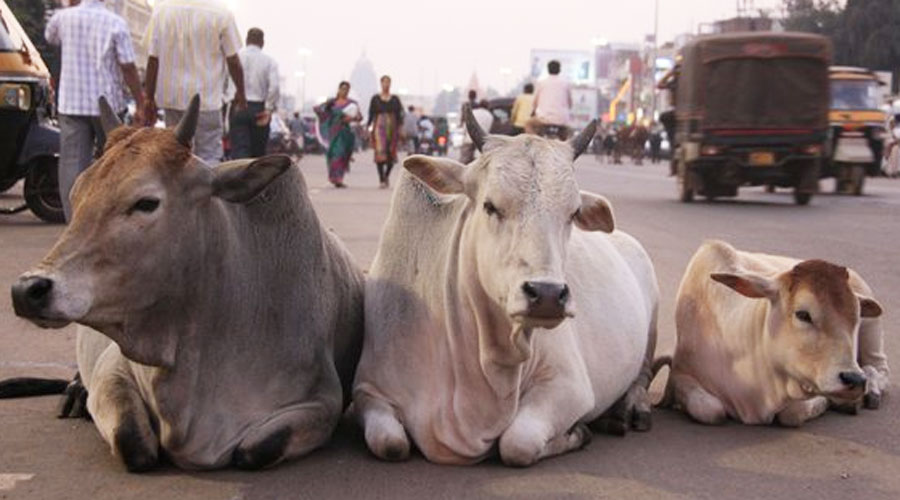The Karnataka government is determined to impose a total ban on cattle slaughter and, in the process, do away with whatever little concessions that were allowed in the existing law.
Despite the Congress voicing concerns over the wider ramifications and constitutional rights of those who might want to consume beef, the BJP government wants to emulate Gujarat and Uttar Pradesh in implementing a total ban.
State animal husbandry minister Prabhu Chavan is set to visit Uttar Pradesh and Gujarat to “study” how those two BJP-ruled states have enforced the ban.
According to a government source, who cannot be named, the minister would return with “inputs from Gujarat and UP on banning cattle slaughter”.
The Karnataka Prevention of Cow Slaughter and Cattle Preservation Act, 1964, permits only the slaughter of bulls and male buffaloes above the age of 12 and certified unfit for breeding or working in farmlands. But the BJP wants to ban the slaughter of all cattle — male or female.
The then BJP government led by Jagadish Shettar had moved an amendment bill in 2012 that increased the age of animal to be slaughtered and made punishment harsher.
Leader of the Opposition Siddaramaiah on Tuesday held a meeting with a delegation from the Muslim community who would be adversely affected once the law is passed.
“The Muslim community members were extremely anxious about this law. So we discussed the ramifications,” Siddaramiah told reporters on Tuesday evening.
“They (Muslims) are apprehensive that this law will put them in trouble in many ways,” Siddaramiah added.
The majority of those engaged in cattle trading and meat business belong to the minority community.
Siddaramiah challenged the BJP to bring in such a law in Goa where they are in power. “Why are they bent on bringing this law in Karnataka and not in Goa?” he asked, alluding to the state where a large number of people consumed beef.
The Congress has decided to oppose the bill when it is tabled in the Assembly and launch a protest across the state.
Karnataka is a state where cow vigilantes take law into their hands and attack cattle traders and transporters. The coastal districts of Dakshina Kannada, Udupi and Uttara Kannada are among the worst hit by cow vigilantism.
Dakshina Kannada district CPM secretary Vasant Achari said the law once enacted would not only lead to an increase in cow vigilantism, but also hurt farmers.
“Most of the farmers own cattle. At least now they can sell them to cattle traders. But once this law is passed, farmers will have to take care of aged and ailing cattle, which is an expensive proposition,” Achari said.
There is also an apprehension about the way the law would further divide people. “Even those who challenge the law would be seen as against cows and for their slaughter and thus against Hindu religion,” he cautioned.
Karnataka has regularly witnessed brutal attacks in the name of cow protection ever since the Sangh parivar leveraged it as a symbol of religion and Hindu culture.
Even a BJP worker was lynched to death in Udupi in August 2016. A professional cattle transporter, Praveen Poojary, 29, was waylaid by a mob of cow vigilantes and beaten to death.
K. Phaniraj of Komu Sauharda Vedike (Forum for Communal Harmony), an NGO, told this newspaper that cattle rearing, trading and slaughter would get badly affected by the new law.
“Instead of a blanket ban on the slaughter of all cattle, the government should ideally provide an alternative to the thousands who would lose their livelihood,” Phaniraj said.
“Cattle trading is essentially an economic pursuit. Striking it down with a legislation will certainly lead to lot of issues in the society,” he said, adding cattle smuggling will continue and give rise to more cow vigilantism and violence.











